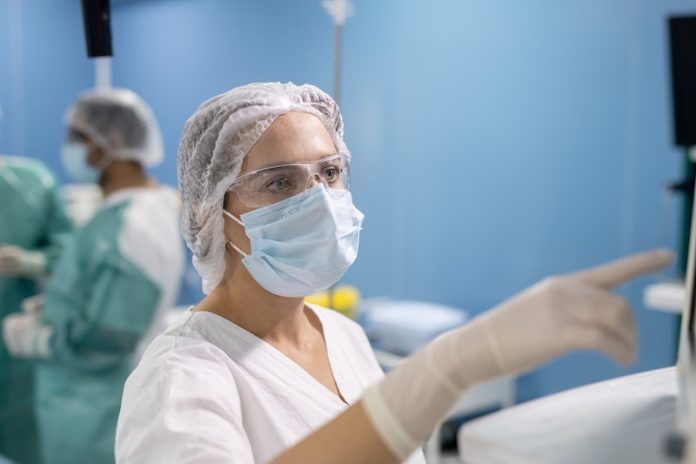
Surgeries can save lives. But sometimes, they can also cause problems. These problems are called complications. They are the third leading cause of death globally.
Every year, around 4.2 million people die from complications 30 days after surgery. Doctors need a way to know if a patient could have complications after surgery. This can help save lives and money.
“Making patients healthier before surgery can help avoid complications,” said Dr. Aman Mahajan, a big shot doctor at the University of Pittsburgh and UPMC.
But, he added, finding out who might have problems can be hard. Doctors are busy. They have to look at lots of health data and do extra tests. So, Dr. Mahajan and his team wanted to make a tool to help.
The Supercomputer Helper
Dr. Mahajan and Dr. Oscar Marroquin, a data expert at UPMC, trained a computer to help. They taught the computer to learn from the health records of over 1.25 million patients who had surgery.
The computer learned to predict if a patient might die or have a major problem, like a stroke or heart attack, after surgery.
They checked if the computer was correct using the records of another 200,000 patients. It was correct! So, they started using the computer in 20 UPMC hospitals.
How Does the Computer Help?
Every morning, the computer checks the health records of patients who are going to have surgery. It tells the doctors if a patient might have complications.
This helps the doctors take care of the patients better. They can help the patient make healthier choices before surgery.
Or they might send the patient to a special center at UPMC that helps prepare people for surgery.
Doctors can also ask the computer for help anytime they want. It’s like having a super smart assistant who’s always ready to help!
The Computer vs. The Old Way
To see how good their computer helper was, Dr. Mahajan’s team compared it to the old way of predicting complications.
The old way was a program used by the American College of Surgeon’s National Surgical Quality Improvement Program (ACS NSQIP).
This program needed doctors to put in patient information by hand. If any information was missing, the program couldn’t make a prediction.
They found out that their computer helper was better at finding patients who might have complications than the old program.
“Our computer helper is designed for the busy doctor,” Dr. Marroquin said. “It works all by itself and can make smart guesses even if some data is missing. This means doctors don’t have to do extra work and they get a helpful tool.”
What’s Next?
Dr. Mahajan and his team are not done. They want to make the computer helper even better. They want it to guess if a patient might get other complications like sepsis and breathing problems.
These problems often make patients stay longer in the hospital after surgery. With this smarty pants computer, we can make surgeries safer and help patients recover faster. Isn’t that amazing?
If you care about health, please read studies about the harm of vitamin D deficiency you need to know, and does eating potatoes increase your blood pressure.
For more information about health, please see recent studies about unhealthy habits that may increase high blood pressure risk, and results showing MIND diet may reduce the risk of vision loss disease.
The study was published in JAMA Network Open.
Follow us on Twitter for more articles about this topic.
Copyright © 2023 Knowridge Science Report. All rights reserved.



